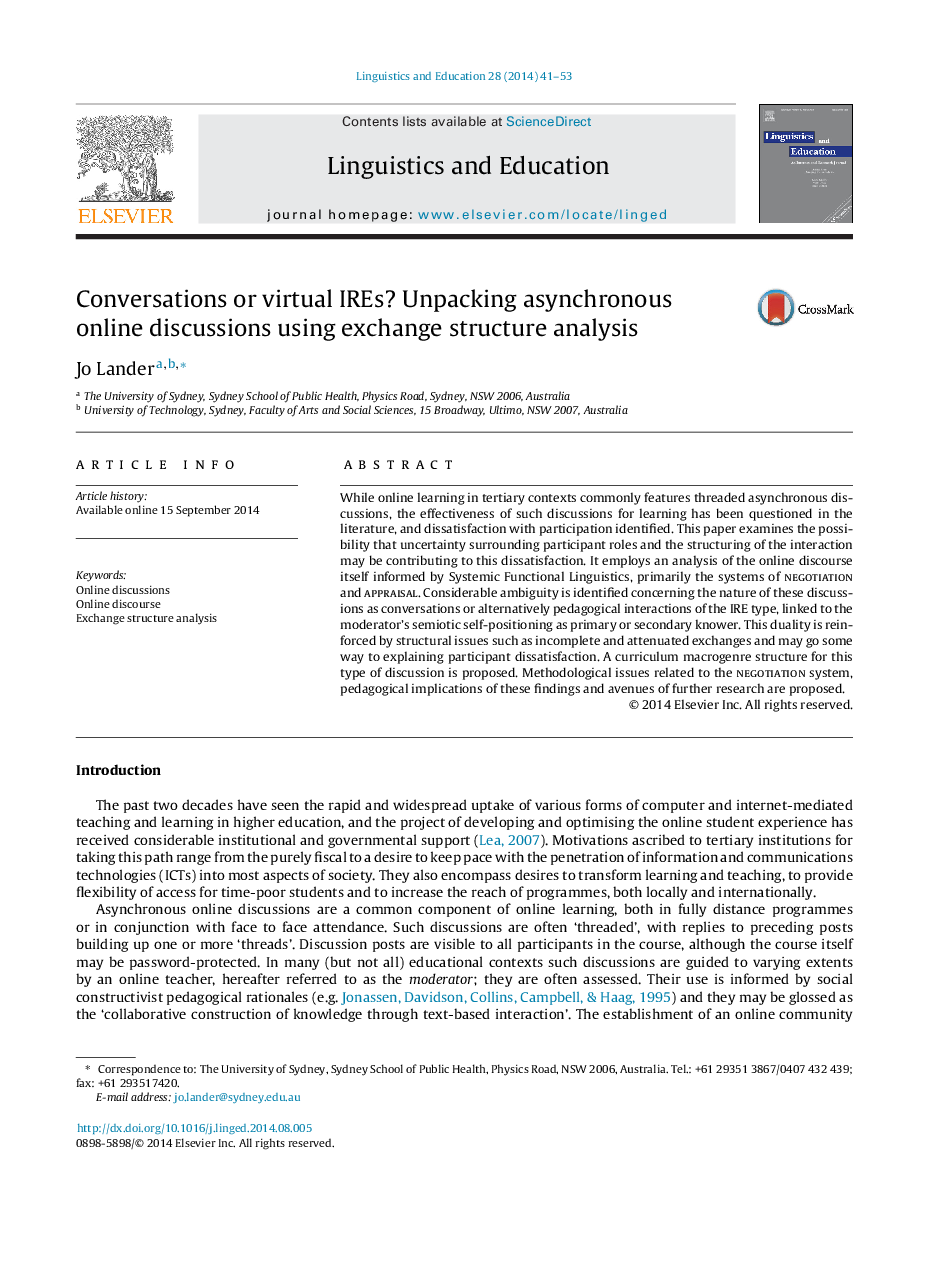| Article ID | Journal | Published Year | Pages | File Type |
|---|---|---|---|---|
| 366129 | Linguistics and Education | 2014 | 13 Pages |
•The pedagogical potential of online discussions is often not realised in practice.•The nature of the discussion as a conversation or pedagogical exchange is ambiguous.•Exchange structure analysis shows exchanges are incomplete and fragmented.•Written academic genres in student responses are often incomplete.•Interpersonal concerns may override congruent questions and clear feedback.
While online learning in tertiary contexts commonly features threaded asynchronous discussions, the effectiveness of such discussions for learning has been questioned in the literature, and dissatisfaction with participation identified. This paper examines the possibility that uncertainty surrounding participant roles and the structuring of the interaction may be contributing to this dissatisfaction. It employs an analysis of the online discourse itself informed by Systemic Functional Linguistics, primarily the systems of negotiation and appraisal. Considerable ambiguity is identified concerning the nature of these discussions as conversations or alternatively pedagogical interactions of the IRE type, linked to the moderator's semiotic self-positioning as primary or secondary knower. This duality is reinforced by structural issues such as incomplete and attenuated exchanges and may go some way to explaining participant dissatisfaction. A curriculum macrogenre structure for this type of discussion is proposed. Methodological issues related to the negotiation system, pedagogical implications of these findings and avenues of further research are proposed.
